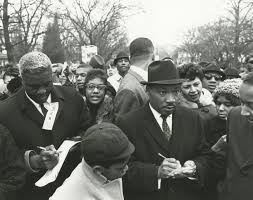Of the one hundred former Major League or Negro League professional baseball players who played life’s last inning in 2022, six played for the Kansas City Athletics. Three played under team owner Arnold Johnson after he bought the Philadelphia Athletics and moved the franchise to Kansas City in 1954: pitcher Ralph Terry (died March 16, 2022), infielder/outfielder Hector Lopez (died September 29, 2022), and pitcher Ray Herbert (died December 20, 2022). In my last blog post (June 2023), I wrote about them.
The other three played with the
Athletics when Charlie O. Finley became the team’s owner after the 1960 season
and before he moved it to Oakland in 1968:
catcher Joe Pignatano (died May 23, 2022), pitcher Dave Wickersham (died
June 18, 2022), and outfielder Leo Posada (died June 23, 2022). This blog post
will pay tribute to them.
After
purchasing the Athletics in December 1960, Finley had the daunting task of
improving the team, which had finished in last place. One way of doing it,
acquiring players available from other Major League teams. One player purchased
in 1961, Joe Pignatano.
Joe Pignatano
Born August
4, 1929, Pignatano signed up with his hometown Brooklyn Dodgers in 1948. Making
his Major League debut on April 28, 1957, he missed the “Boys of Summer”
successful years of the Dodgers (1947 – 1956, seven National League pennants,
1955 World Series Champions).
After five
innings on September 24, 1957, Pignatano entered the game to
replace catcher Roy Campanella in the Dodgers’ line-up. It would be the Dodgers’
last game at Brooklyn’s Ebbets Field. The franchise would move to Los Angeles
for the 1958 season. Permanently paralyzed after a car accident during the
winter of 1958, unfortunately it turned out to be the last game of Hall of Famer
Campanella’s career.
Pignatano played second-string catcher behind the Dodgers’ John Roseboro
for the next three years. His single in the bottom of the 12th inning helped to lead the Dodgers’ scoring the winning run in the 1959 National League pennant playoff game against the Milwaukee Braves. The Dodgers then defeated the Chicago White Sox in the World Series four games to two.
In the
winter of 1961, the Kansas City Athletics purchased Pignatano’s contract from
the Dodgers. He shared the team’s catching duties in 1961 with Haywood Sullivan,
playing in ninety-two games and batting .241.
Retiring after the 1962 season with the New York Mets, Pignatano became a Major League coach (1965 – 1982) including being the bullpen coach for the 1969 World Series champion New York Mets.
Two minor league players signed when Arnold Johnson owned the A’s made their Major League debut in 1960 and played with the team when Finley became the owner: Dave Wickersham and Leo Posada.
Dave Wickersham
Born September 27, 1935, in Erie, Pennsylvania, Wickersham signed with the Pittsburgh Pirates in 1955 after pitching at Ohio University. He spent four successful years in the Pirates’ minor league system, 53 - 26 at levels AA and lower. The Kansas City Athletics chose him in the 1959 minor league draft. Wickersham made his Major League debut with the Athletics on September 18, 1960.
Used as a
spot starter and relief pitcher, Wickersham went 11- 4 for the Athletics in
1962. As the team’s main starting pitcher in 1963, Wickersham went 12 – 15
(4.09 ERA, 237.2 IP).
In November
after the 1963 season, believing the A’s needed more power in the line-up,
Finley traded Wickersham, second basemen Jerry Lumpe, and pitcher Ed Rakow to
the Detroit Tigers for All Star right fielder Rocky Colivito.
Wickersham (19
– 14) along with Mickey Lolich (18 – 9) were the mainstays of the pitching
staff for the fourth place Tigers in 1964. Slumping to 9 – 14 the next year,
Wickersham became a spot starter & relieve pitcher for the team by
1967.
After one year with the Pittsburgh Pirates in 1968, he finished his career with the Kansas City Royals in 1969. Wickersham, Moe Drabowsky, and Aurello Monteagudo are the only three to have played with both the Royals and the Kansas City Athletics.
Leo Posada
Posada, born April 1, 1934, in Havana, Cuba, signed with the Milwaukee
Braves in 1954. The Athletics took him
in the 1956 minor league draft and he made his Major League debut on September
21, 1960.
As the team’s main left fielder in 1961 (116 games), Posada hit .253 with
seven Home Runs and 53 RBI. However in
1962, the competition for the Athletics’ outfield positions increased with the
addition of rookie fellow Cuban Jose
Tartabull, Manny Jimenez, and veteran Gino Cimoli. With Posada hitting .196 in 29 games, the
Athletics traded him along with pitcher Bill Kunkel to the Milwaukee Braves in
August 1962 for pitcher Orlando Pena; another player from Posada’s homeland of
Cuba.
Posada spent the remainder of his pro baseball career playing in both the minor and winter leagues (1963 – 1969). After retiring, he became a minor league manager and coach for the Houston Astros (1968 – 69, 1972 - 74, 1976 – 78) and the New York Yankees (1975). Also, beginning in 1979, Posada coached hitting in the Los Angeles Dodgers’ organization.










